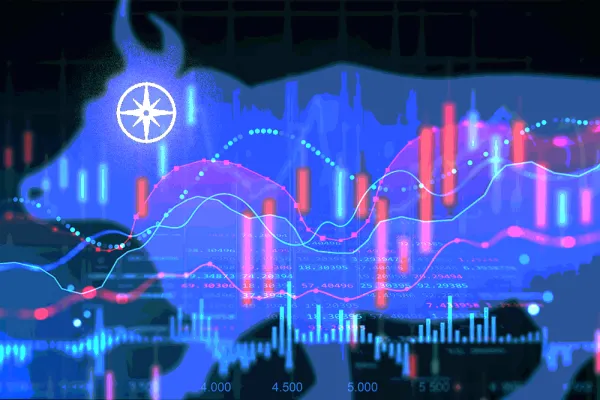To view a PDF of this report click here.
Turkey finds itself battered by macroeconomic concerns that it can do little to control. But there is cause for optimism that better times may lie ahead. For all that emerging markets have been dragged down en masse by problems from China to Brazil, Turkey is different in a number of positive ways – if it could only convince investors.
“We are going down a hard path – that’s a mild way of saying it,” says Pinar Uguroglu, Istanbul-based deputy CIO of BNP Paribas Investment Partners. “It’s not Turkey-specific; it’s a difficult period for all emerging markets.” The problem is, the world’s investment community doesn’t differentiate. “Every country is put in the same basket, though each has different dynamics,” she says. Uguroglu points to global factors supporting Turkey. For example, a commodity importer like Turkey should benefit from the decline in oil prices. “But we are still being hit.”
And it could get worse. “As the US economy recovers, a rate hike from the Fed seems inevitable,” says Hakan Atilla, deputy general manager, international banking at Halkbank. “Therefore we may see a relatively higher cost of borrowing, and a potential outflow of investor capital from the emerging markets.”
While there is certainly some truth in the fact that Turkey is being impeded by global events, to foreign equity investors, the local headlines don’t look that good either. Ali Kirali, director of economic research and strategic planning at Odea Bank, says: “Increasing political tensions in the run-up to the June election, coupled with increasing geopolitical tensions, has put pressure on both investor and consumer confidence in the first eight months of the year, which in turn suppressed Turkey’s growth.” That election failed to deliver a government, and another will now follow on November 1.
The case for a brighter view
Nevertheless, those on the ground in Istanbul think that a closer look affords a brighter view. Kirali points out that Turkey still managed to grow at one of the highest rates among G20 countries this year. And he’s not alone in seeing a silver lining. “These are challenging days for Turkey, but if you look at the fundamentals, we have a very strong and very young population dynamic,” says Elvan Oztabak, head of financial institutions and investor relations at Halkbank. Roughly half of the population is under 30. “The unemployment rate is resistant at around 10 percent, and there are two very strong pillars of the Turkish economy: the budget discipline is very good, and the banking sector is strong and well regulated.” Atilla adds that public finances are in good shape, with a low public debt-to-GDP ratio.
Politics are at the heart of everything. “The election in November gives Turkey another chance for a clear slate once a government is in place,” says Selim Yazici, CEO and head of Turkish equities at BNP Paribas Investment Partners. And the economy that government will inherit is not as troubled as some in the emerging world. “Turkey doesn’t have a significant budget deficit, unlike some,” he says. “It has a primary budget surplus.”
That’s true, but the current account deficit is a big issue, and here we come to an apparent contradiction. Late last year, when oil prices started to decline sharply, Turkey was seen as one of the few emerging markets that would benefit from the trend. It was said then that every $10 drop in the oil price would improve Turkey’s current account deficit by $4.5 billion. “According to our calculations, every $10 fall in per barrel oil prices leads to a 0.5 percent fall in the current account deficit-to-GDP ratio, a 0.2 percent decrease in the inflation rate and 0.3 percent increase in GDP, all else equal,” says Ali Kirali, director of economic research and strategic planning at Odea Bank. “Of course, in real life there is no such thing as ‘all else equal.’”
Instead, the depreciation of the Turkish lira and an increase in risk premiums have countered most of the positive impact of oil prices. “The deficit is shrinking, but not as much as we would have expected,” says Yazici.
Currency concerns
Moreover, the currency deterioration has pretty much cancelled out the oil price fall. And it’s not just the dollar to the Turkish lira that matters. “Moves between the euro and the dollar have been against us,” Uguroglu adds. “Our main export partners are European, so the currency [the falling euro] impacts our export performance.” At Halkbank, Atilla argues that the current account deficit has come down – he says it’s about 5.5 percent of GDP today from 8 percent in 2014 – and that it will have an impact on inflation which will be more visible once the exchange rate stabilizes.
Another Turkey-specific matter that has arisen more frequently recently is security, a combination of some troubled neighbors (chiefly Syria and Iraq – these days Iran is, relatively speaking, a haven of stability) and the Kurdish issue. While Yazici doesn’t deny this, he says it’s nothing new in Turkey: “This is something we have been living with for 30 years. I don’t think it will have a big impact on the market, though a successful peace process would be very beneficial for the economy.”
So where should the new government concentrate? “The economy,” says Uguroglu. “As politicians prepare for the election cycle, their focus gets shifted. We hope the new government will shift its focus back to the economy. With strong support, the central bank can move to a framework that would tame currency depreciation, and politicians can focus on the structural problems Turkey is facing,” including constant inflation.
Growth should be on the agenda, she says. “We will grow 3 percent if we’re lucky in 2015. Turkey has to do much better, given its population and its condition as a country.”
Kirali agrees – as long as the new government can couple growth efforts with long-awaited structural reforms, “If the new government is of a reformist nature and implements much needed structural reforms, I think Turkey will once again become one of the bright spots within the peer EM group.”
Oztabak at Halkbank notes that Turkey has been going through election cycles – regional, presidential and general – for a year now. “Once we have this behind us we will hopefully have several years of an election-free period,” allowing politicians to focus on reforms to improve individual rights, among other things.
Turkey doesn’t particularly need strident reform, says Yazici, because it’s already done that. “When you compare us with India, for example, Turkey has already implemented most of the reforms that people call for there. Maybe we need a new pro-growth economic model on the table, and we need a strong justice system so that foreign investors become more comfortable in Turkey. But the fundamental economic reforms are already mostly done.”
The banking system is in good shape. “Turkish banks are still pretty strong,” says Yazici. “There is a good capital adequacy ratio and a low non-performing loan ratio, although numbers might go up in a high dollar environment. We don’t have any major toxic assets and the lending side is showing 15 percent growth.”
Indeed, banking is one area investors might look at if they feel Turkey’s overall markets have bottomed. Uguroglu highlights the banking sector as one of the first sectors to benefit if macroeconomic conditions become supportive, if the currency stabilizes and if capital moves back into Turkish assets.
Oztabak agrees, pointing to a capital adequacy ratio of 16 percent – much higher than most emerging market peers – and an NPL ratio that has fallen from 5.3 percent in the global financial crisis to 2.9 percent today. Return on equity has slipped but temporarily stands at 11-12 percent. Still, many Turkish banks are trading below book value.
Undervalued assets
Kirali says that “Turkish assets are currently undervalued from a macroeconomic, fundamental point of view.” He believes that, once elections are over, “Turkey offers many opportunities thanks to its strong fiscal balance, well-capitalized banking sector and resilience of its exporters in diversifying markets and products.” He expects a strengthening of the major exporting sectors as the EU and Russia, Turkey’s main trading partners, begin to recover.
But the question at the moment is whether that stability has yet been reached. “I think we are near the levels of an attractive entry point,” Uguroglu says. “The only hesitation I have is if the currency keeps depreciating. From a value point of view, it’s cheap. It’s just a question of how cheap it can get.”
As Yazici puts it: “There’s a big clash between uncertainty and prices. If prices are attractive but uncertainty remains, uncertainty wins in the short term.”
By Chris Wright





